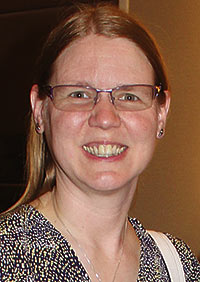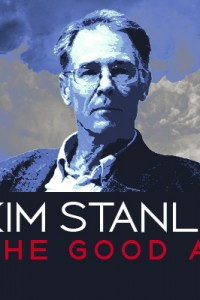SF Across the Spectrums by Karen Burnham

In 2019 I really learned about drinking from the firehose that is the amount of speculative short fiction available in electronic/online venues. As far as I can tell I read about 530 stories from at least 35 different outlets, and I know that there’s an immense amount of excellent work that I missed. The variety that’s available is fantastic, and I’m also very pleased by the overall quality that I’ve found. Across issues great and small, I rarely find anything that’s less than at least perfectly readable. Whittling down my most-recommended stories list to only ten was a real challenge.
One of my favorite things is how much international fiction is becoming easier to find. Clarkesworld has long regularly included translated fiction from China, and in 2019 they added fiction translated from Korean as well. Strange Horizons had two special issues, one in the spring focused on Nigeria and one in the fall centered on Brazil. Future Science Fiction Digest is a relatively new venue, but it is very strong in translated fiction, featuring some of the only stories I saw this year from Russia. Omenana continues to bring us fiction from Africa and the African diaspora, while Mithilia Review is broadly international, with particular strengths across Asia. This is probably a good time to mention that publishing translated short fiction is quite a bit more expensive than English SF, and both Omenana and Future SF Digest have put out calls for help, either monetary or for volunteer time. Future SF Digest already had to scale back its last issue, so if you don’t want to lose this new and valuable venue I hope readers who care about quality short fiction with an international scope will help pitch in.
Speaking of closings, we lost Compelling SF and the flash fiction venue Factor Four this year. Apex Magazine shuttered as editor Jason Sizemore had to re-prioritize his publishing efforts after a major health scare. Arsenika and Capricious also made hiatus announcements that should last into 2020; I’m hoping to see both of them come back strong. I especially appreciate Capricious’s showcasing of interestingly queer perspectives and authors from Australia and New Zealand.
 On the other hand, Beneath Ceaseless Skies celebrated its 11th anniversary with a strong double issue, and Future Fire gave us an expanded issue number 50 that really showcased its strengths, especially bringing us characters who get less representation in most speculative fiction: folks with disabilities, neural atypical folks, sex workers, etc. In addition, I thought Fiyah‘s themed issues on Hair (#10) and Chains (#12) were especially well handled. Giganotosaurus also recovered from a hiatus period and is back to publishing monthly novelette/novella length stories.
On the other hand, Beneath Ceaseless Skies celebrated its 11th anniversary with a strong double issue, and Future Fire gave us an expanded issue number 50 that really showcased its strengths, especially bringing us characters who get less representation in most speculative fiction: folks with disabilities, neural atypical folks, sex workers, etc. In addition, I thought Fiyah‘s themed issues on Hair (#10) and Chains (#12) were especially well handled. Giganotosaurus also recovered from a hiatus period and is back to publishing monthly novelette/novella length stories.
There was an amazing online-only anthology that came from the XPRIZE, Current Futures edited by Ann VanderMeer. Released on World Oceans Day, it has a fantastic lineup of near-future SF dealing with the oceans, all sobering about the challenges we face but cautiously optimistic about our ability to deal with them. I also happened to trip across an interesting experiment: “The Training Commission” by Ingrid Burrington & Brendan Byrne was told in installments via email newsletter. While I sometimes lost track of some of the threads due to the (perfectly reasonable) time between installments, I thought this was a pretty successful effort, and I wonder if we’ll see more of this kind of thing.
I want to highlight some relatively new authors from whom I saw very strong work; one can never tell who will end up being the next Grand Master, but I feel like encouraging great work as early as possible can only help. Elise Kim had a strong story in New Myths that may have been a debut. R.S.A. Garcia had a story in Clarkesworld that seems to be a very early sale. Cislyn Smith wrote a lovely dreamy story in Diabolical Plots, and Arula Ratnakar’s first story made my top ten list, as did Xue Xihe’s. Kevin Wabaunsee is another author very early in his career appearing on my year end best-of list.
Overall, I want to thank and heap praise on all the publishers, editors, authors, and volunteers who bring out issues of these magazines month after month, quarter after quarter, annual after annual. Even with the lowered barriers to entry that the internet gives us, producing quality work consistently is never easy. Thanks to all of these people, it’s easier and easier for us, the readers, to find fiction that truly brings us stories from around the world, from all points on the LGBTQ spectrum, on the ability/disability axis, of differing types of neural processing, etc. Given the challenging future that we’re facing, collectively as a planet, I’m interested in as many perspectives on the world as I can get. We’re going to need all of them to find the best paths forward for ourselves.
Recommended Stories
“Beyond the El”, John Chu (Tor.com 1/16/19)
“The Painter of Trees”, Suzanne Palmer (Clarkesworld 6/19)
“Portrait of the Artist” K.J. Parker (BCS #287)
“In This Moment, We Are Happy”, Chen Qiufan (Rebecca Kuang, trans.) (Clarkesworld 8/19)
“Insaan Hain, Farishte Nahin”, Arula Ratnakar (Clarkesworld 5/19)
“Malinche” Gabriela Santiago (Clarkesworld 9/19)
“Boiled Bones and Black Eggs”, Nghi Vo (BCS #275)
“The Great Mandini and the Dead Man’s Hand” Kevin Wabaunsee (Strange Horizons 10/14/19)
“Enchiridion of the Soltite”, Xue Xihe (Lackington’s #19)
“The Archronology of Love”, Caroline M. Yoachim (Lightspeed 4/19)
Karen Burnham is an electromagnetics engineer by way of vocation, and a book reviewer/critic by way of avocation. She has worked on NASA projects including the Dream Chaser spacecraft and currently works in the automotive industry in Michigan. She has reviewed for venues such as Locus Magazine, NYRSF, Strange Horizons, SFSignal.com, and Cascadia Subduction Zone. She has produced podcasts for Locusmag.com and SFSignal.com, especially SF Crossing the Gulf with Karen Lord. Her book on Greg Egan came out from University of Illinois Press in 2014, and she has twice been nominated in the Best Non Fiction category of the British SF Awards.
This review and more like it in the February 2020 issue of Locus.
 While you are here, please take a moment to support Locus with a one-time or recurring donation. We rely on reader donations to keep the magazine and site going, and would like to keep the site paywall free, but WE NEED YOUR FINANCIAL SUPPORT to continue quality coverage of the science fiction and fantasy field.
While you are here, please take a moment to support Locus with a one-time or recurring donation. We rely on reader donations to keep the magazine and site going, and would like to keep the site paywall free, but WE NEED YOUR FINANCIAL SUPPORT to continue quality coverage of the science fiction and fantasy field.






